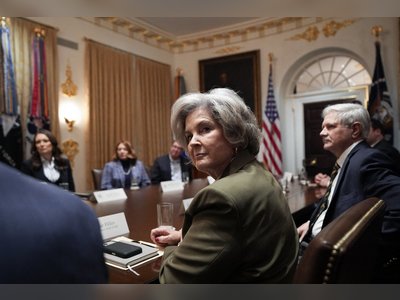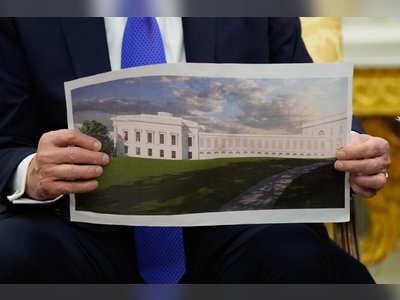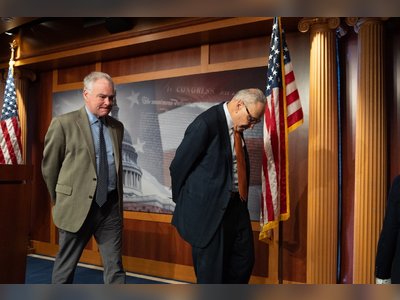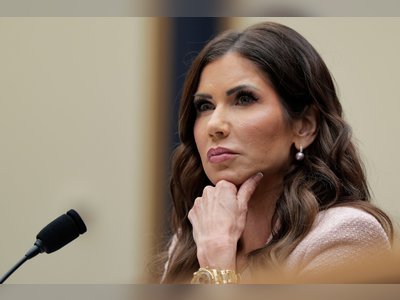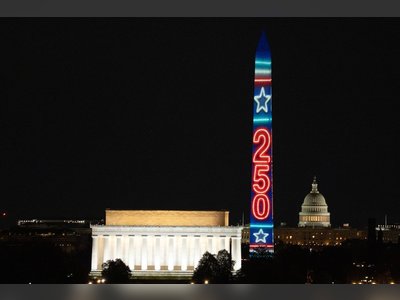
US Supreme Court Upholds Ban on TikTok Amid National Security Concerns
The unanimous decision emphasizes the perceived threat from TikTok’s Chinese ownership while raising issues about freedom of speech.
In a landmark decision, the US Supreme Court has unanimously upheld a federal law that bans the social media app TikTok, effective immediately unless it is sold by its Chinese parent company, ByteDance.
The ruling takes effect on January 19, prompting immediate concerns about its implications on speech and access for its 170 million American users.
This ruling caps a period of intense debate over national security concerns prompted by TikTok's ties to China.
The decision comes just days before President Joe Biden concludes his term in office, and introduces new challenges for President-elect Donald Trump, who assumes office on Monday.
The Biden Administration has indicated that they will not enforce the ban in its outgoing days, while President-elect Trump has expressed both a desire to negotiate a resolution and an appreciation for the platform, where he is a prominent figure with 14.7 million followers.
White House press secretary Karine Jean-Pierre expressed a desire for TikTok to continue operating under American or otherwise compliant ownership.
However, with no imminent sale, TikTok will soon become unusable as updates become unavailable, according to the US Justice Department's court filings.
Prominent Senate Republicans have called for decisive action against TikTok’s Chinese owner while noting missed opportunities to divest the platform.
Solicitor General Elizabeth Prelogar defended the law in court, indicating uncertainty over whether initiating a sale could warrant a 90-day delay in the enforcement of the ban.
Legal representatives of TikTok and ByteDance highlighted the barriers posed by Chinese laws on technology export, complicating potential divestment of the proprietary algorithm vital to TikTok's success.
TikTok's simplicity and engaging format have been credited with attracting legions of young users, but the app has faced criticism and legal challenges over concerns it is addictive and detrimental to children's mental health, with multiple US states filing suits.
The TikTok debate symbolizes broader geopolitical tensions between the United States and China.
Washington's warnings about data security and content manipulation by the Chinese government bolster the reasoning behind the legislative action.
TikTok insists that no evidence shows Chinese interference or access to American user data.
The bipartisan law signed by President Biden in April follows prolonged disputes over the app's safety, emphasizing the US's stance on mitigating perceived threats from foreign-owned technology platforms.
The ruling takes effect on January 19, prompting immediate concerns about its implications on speech and access for its 170 million American users.
This ruling caps a period of intense debate over national security concerns prompted by TikTok's ties to China.
The decision comes just days before President Joe Biden concludes his term in office, and introduces new challenges for President-elect Donald Trump, who assumes office on Monday.
The Biden Administration has indicated that they will not enforce the ban in its outgoing days, while President-elect Trump has expressed both a desire to negotiate a resolution and an appreciation for the platform, where he is a prominent figure with 14.7 million followers.
White House press secretary Karine Jean-Pierre expressed a desire for TikTok to continue operating under American or otherwise compliant ownership.
However, with no imminent sale, TikTok will soon become unusable as updates become unavailable, according to the US Justice Department's court filings.
Prominent Senate Republicans have called for decisive action against TikTok’s Chinese owner while noting missed opportunities to divest the platform.
Solicitor General Elizabeth Prelogar defended the law in court, indicating uncertainty over whether initiating a sale could warrant a 90-day delay in the enforcement of the ban.
Legal representatives of TikTok and ByteDance highlighted the barriers posed by Chinese laws on technology export, complicating potential divestment of the proprietary algorithm vital to TikTok's success.
TikTok's simplicity and engaging format have been credited with attracting legions of young users, but the app has faced criticism and legal challenges over concerns it is addictive and detrimental to children's mental health, with multiple US states filing suits.
The TikTok debate symbolizes broader geopolitical tensions between the United States and China.
Washington's warnings about data security and content manipulation by the Chinese government bolster the reasoning behind the legislative action.
TikTok insists that no evidence shows Chinese interference or access to American user data.
The bipartisan law signed by President Biden in April follows prolonged disputes over the app's safety, emphasizing the US's stance on mitigating perceived threats from foreign-owned technology platforms.


